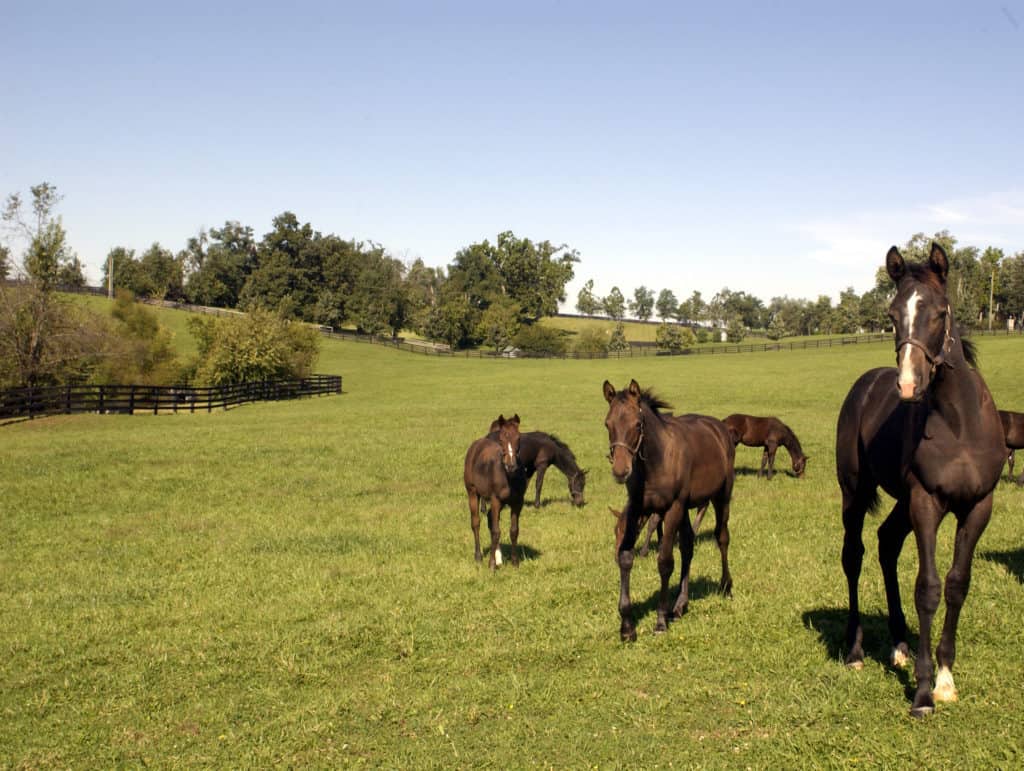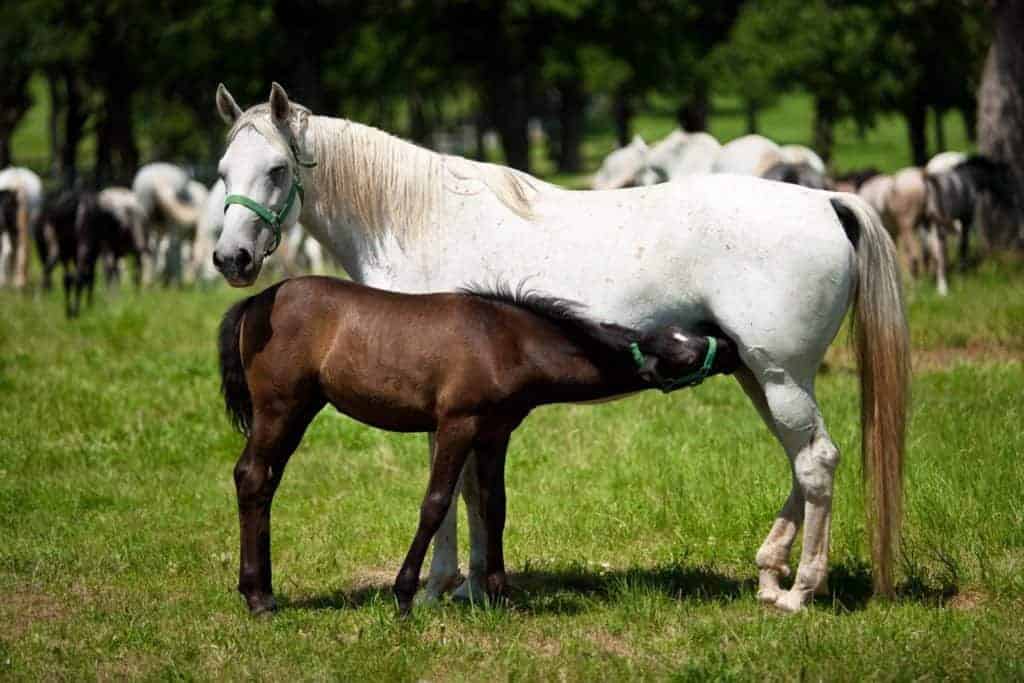
Collecting Colostrum From Mares
How can you collect colostrum and save it for future use, and how long can you keep it? A veterinarian weighs in.

How can you collect colostrum and save it for future use, and how long can you keep it? A veterinarian weighs in.

German researchers found foals can spontaneously correct their own overjets (parrot mouth) within a year. However, they also found that foals born without overjets can develop them within the first few months of life.

Rhodococcus equi is the most serious cause of pneumonia in 1- to 4-month-old foals. Learn more about this potentially deadly pathogen and how to protect your foals with these resources on TheHorse.com.

Don’t wait until your foal is weaned to plan a diet that meets his increased energy, protein, and mineral requirements.

Digital and optical refractometers are simple, rapid, and cost-effective methods for assessing failure of passive transfer in foals with moderate to good accuracy, researchers found.

Infection can cause serious illness in neonates. Make sure your newborn receives enough disease-fighting antibodies from his dam’s first milk.

Proper nutrition is critical for growth and development. Learn the right way to feed your foal.

Many factors affect your horse’s ability to mount an effective immune response, one of which is his age. Learn more about the horse’s immune system and how it functions at every stage of his life.

Orphan foals raised with a correct balance of nutrients and monitored for growth, food consumption, and weight gain can be every bit as tall, strong, and athletic as foals raised by their dams.

Veterinarians share their recommendations for managing orphan foals, including diet challenges and behavior issues.

Recognizing and treating club feet in young horses can help them succeed in their intended discipline and, ultimately, prevent lifelong hoof complications.

Dr. Rob MacKay shared presented research on ice boots and cryotherapy for laminitic horses, R. equi and insect bit hypersensitivity vaccines, EPM, and more.

The foal’s dam developed atypical myopathy in the sixth month of gestation. The foal, born at full term, was eventually euthanized due to atypical myopathy complications.

The University of Kentucky Ag Equine Programs will host its 8th Annual UK Equine Showcase in conjunction with an Equine Vet Continuing Education session (formerly known as the Kentucky Breeders’ Short Course) Jan. 25-26, 2019.

A Kentucky Thoroughbred farm is reaping the benefits of healthier mares and foals after making horse pasture renovations over the past year with guidance from University of Kentucky personnel.

Do all young horses with fluid-filled joints or lameness have osteochondritis dissecans (OCD)? Download this fact sheet to find out.
Stay on top of the most recent Horse Health news with
"*" indicates required fields